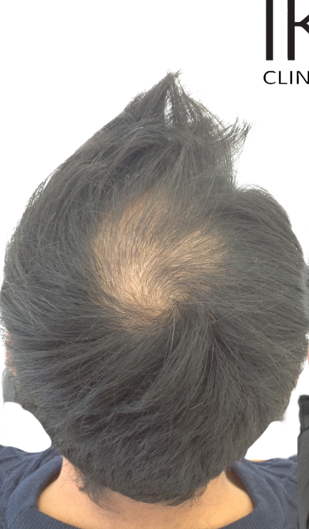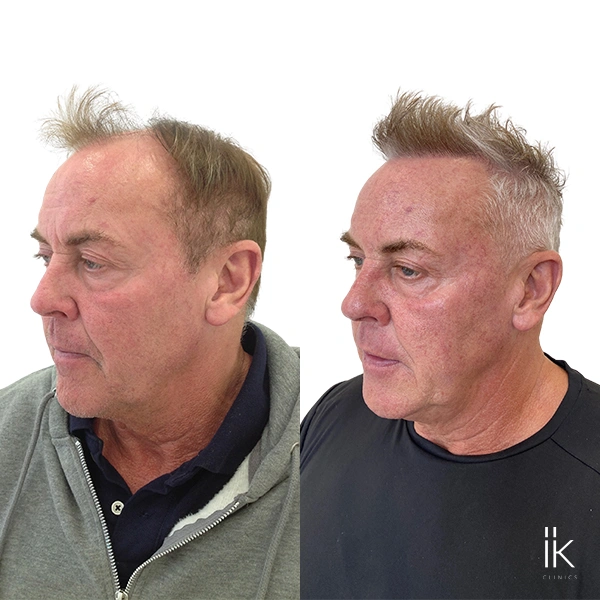Hair restoration has gained popularity over the years as an option for those experiencing hair loss, whether due to genetics, stress, or simply ageing.
With procedures like FUE (Follicular Unit Extraction) and DHI (Direct Hair Implantation) available, people now have more choices than ever when it comes to restoring their hair. But before jumping into any procedure, it’s important to weigh the benefits and risks.
Understanding these will help you make an informed decision about whether hair restoration is right for you.
Understanding Hair Restoration Treatments
Hair restoration isn’t a one-size-fits-all solution. Different methods offer various approaches, each with unique benefits and considerations. Among the most popular methods are FUE and DHI.
FUE involves extracting individual hair follicles from a donor area – typically the back of the head – and implanting them in thinning or balding areas. Known for its minimally invasive nature, FUE has become a go-to choice for those looking for a shorter recovery time and natural results.
Meanwhile, DHI takes a similar approach but uses a specialised tool that allows the practitioner to directly implant the follicles without making a channel or incision beforehand. This added precision can reduce the risk of scarring and give a more seamless appearance, though it may be more expensive.
Both FUE and DHI can deliver impressive results, but the choice between them will largely depend on factors like your hair type, personal goals, and budget. Other methods, such as FUT (Follicular Unit Transplantation) or scalp micro-pigmentation, are also worth considering based on individual needs.
Consulting with a professional, like our team at IK Clinics, who understands these techniques is the best way to decide which treatment may suit you best.

The Benefits of Hair Restoration Treatments
One of the main reasons people pursue hair restoration treatments is the boost in confidence they bring. For many, hair is closely tied to self-image and identity, and hair loss can take a toll on one’s self-esteem.
Restoring a fuller head of hair can have a profound impact on how people see themselves and interact with others, improving confidence in both personal and professional settings.
Another major benefit is the natural look that these treatments can achieve. Advances in hair restoration mean that modern techniques can blend seamlessly with your natural hair. Because hair grows gradually over months, it doesn’t appear abrupt or artificial, allowing people to ease into their new look.
When done by a skilled professional, treatments like FUE and DHI produce results that not only look natural but also feel natural, allowing you to enjoy a renewed sense of self without any obvious signs of the procedure.
Hair restoration is also minimally invasive compared to older, more traditional hair transplant methods. For example, with FUE and DHI, there are no large incisions or stitches required, which translates to a quicker recovery time and reduced post-operative discomfort.
Many patients return to normal activities within days, enjoying the convenience of a low-disruption treatment with significant, long-lasting results.
In addition, hair restoration treatments today offer a high degree of customisation. Skilled practitioners can design a plan based on individual hair type, loss pattern, and personal preferences.
This flexibility makes hair restoration accessible to a wider range of people, whether they’re looking to address a receding hairline, add density to thinning areas, or achieve a full transformation.
Lastly, the mental health benefits associated with hair restoration cannot be overstated. Hair loss can be a sensitive issue for many people, often impacting self-confidence and overall happiness. By helping to restore a positive self-image, hair restoration can significantly contribute to one’s mental well-being, promoting a more positive outlook on life.

The Risks and Considerations of Hair Restoration
While hair restoration treatments have many appealing benefits, they do come with certain risks, as with any medical procedure.
One potential risk is the possibility of infection. While techniques like FUE and DHI minimise invasiveness, there is still a risk of infection at the donor or recipient site if proper aftercare is not followed.
Even minor infections can impact the results and require additional treatment, so post-procedure hygiene is essential.
Scarring is another consideration, although it is typically less pronounced with methods like FUE and DHI compared to older techniques. However, some individuals may be more prone to scarring than others, and even the tiniest scars can be a concern for those who keep their hair short.
Knowing your body’s healing tendencies can help set realistic expectations for the visual outcomes.
In some cases, patients experience “shock loss,” where transplanted hair falls out shortly after the procedure. Although this shedding is generally temporary, it can be unsettling if you’re unaware it’s part of the process.
It may take several months before new growth fully replaces the lost hair, so patience is key. Understanding that this phase is natural and short-lived can ease the stress associated with it.
The financial commitment of hair restoration treatments is also worth considering. These procedures can be quite costly, with prices varying based on the method chosen and the clinic’s expertise. Furthermore, multiple sessions may be required to achieve optimal results, which can add to the overall cost.
While some clinics offer payment plans, it’s essential to plan for this expense, particularly since hair restoration is typically considered a cosmetic procedure and may not be covered by insurance.
Additionally, achieving natural-looking results requires a high level of expertise. Hair restoration is an art as much as it is a science, with successful outcomes dependent on the skill of the practitioner. Without careful attention to hairline placement, density, and growth direction, results can look unnatural or even patchy.
This underscores the importance of selecting a reputable clinic, like IK Clinics, and consulting with an experienced surgeon who can demonstrate proven results.
Lastly, side effects from hair restoration treatments are generally mild but can include itching, swelling, and redness at the treated sites. While these effects typically subside within a few days, some individuals may experience prolonged sensitivity.
To avoid exacerbating these side effects, it’s crucial to follow the aftercare advice given by your clinic. Taking these steps can ensure a smoother recovery and help you achieve the best possible outcome.

Choosing the Right Hair Restoration Treatment for You
Choosing the right hair restoration treatment can be a deeply personal decision. Start by evaluating the extent of your hair loss and the results you hope to achieve.
For individuals with mild to moderate thinning, DHI might be preferable due to its precision and minimal scarring. Those with more extensive hair loss may opt for FUE, which can cover larger areas efficiently.
Research is vital when selecting a clinic or practitioner. Not all clinics are equal in terms of experience and results, so taking time to review portfolios, seek recommendations, and consult with multiple professionals can be invaluable.
Many reputable clinics offer free consultations where you can discuss your goals, concerns, and the outcomes you can realistically expect.
Setting a budget and understanding the costs involved is another crucial step. Hair restoration can be an investment, and it’s wise to go in with clear expectations about the financial commitment.
Be sure to inquire about any potential follow-up sessions and what those might cost to avoid surprises down the line. Some clinics may provide financing options, which can help make the procedure more accessible.
Finally, be sure to prepare for the aftercare involved. Proper aftercare can make a difference in how well you heal and the quality of your results. Ask your clinic about any necessary post-procedure products, restrictions, or precautions.
Being informed about aftercare will also help you gauge whether you’re ready to commit to the treatment.
Final Thoughts: Is Hair Restoration Right for You?
Hair restoration offers a promising solution for those looking to address hair loss and boost their confidence. Techniques like FUE and DHI provide natural-looking, long-lasting results with minimal invasiveness. From improved self-esteem to a greater sense of control over one’s appearance, hair restoration has the potential to be a life-enhancing experience.
However, it’s crucial to approach hair restoration with a balanced perspective. While the benefits are significant, understanding and accepting the risks will help you enter the process with realistic expectations. Hair restoration isn’t a magic fix, and achieving the best results requires careful research, planning, and a commitment to aftercare.
For those ready to make the investment, hair restoration can be a transformative journey, both in appearance and self-confidence. But as with any major decision, taking the time to weigh the pros and cons will ultimately lead you to the choice that’s right for you.
About IK Clinics
At IK Clinics, we are proud to stay at the forefront of global hair restoration trends, offering a variety of advanced techniques to meet the diverse needs of our clients. From FUE, PRP to Stem Cell Therapy, we ensure that every client’s treatment is tailored to their personal goals, helping them regain not just their hair but also their confidence.
What’s more, we offer services in various anti-aging treatments. Get in touch to find out more or book a consultation.


